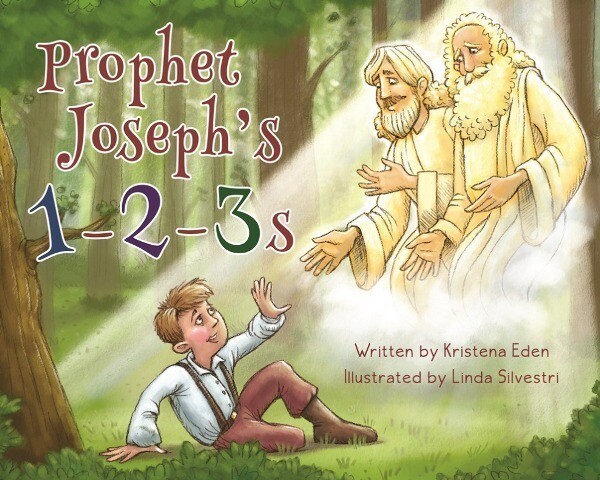How frustrating is it when we find out that the love of our life is really human? Many times, we think marriage is about marrying the right person, so when there’s a problem that arises, we may wonder if we married the wrong person. The truth is not that we marry the “right” person, but that we marry a compatible person striving to do the right things. Marriage is a work in progress involving spirals, sometimes feeling shortchanged, and seeing personal attributes of our spouse not previously recognized.
We all have hard times in our relationships, and we have two healthy ways to deal with them: some toxic ones we need to let go of, and others we need to improve ourselves. The following principles will help you reignite positive feelings in any of your relationships and improve yourself along the way.
1. Unconditional Love
Unconditional love is defined as affection without any limitations, or love without conditions, which looks like caring about the happiness of another person without any thought for what we might get for ourselves.
Have you ever found yourself feeling angry or devastated because of your spouse's actions or wondered if you still love them? Most of us have had those days! What’s important is how you handle these times. We can choose to be hurt or devastated when a spouse makes a decision we disagree with, yet that affects our own life and health and even how we treat them. If you let those feelings take over, your marriage and family will suffer. Even your worship of God will suffer.
It is a choice to love someone in spite of their shortcomings. The choice to love will free you to help your spouse and to help yourself become even stronger, mentally, emotionally, and spiritually. You have to decide to love. You may not feel the love sometimes, but if you decide to love, the feelings will follow.
What is the difference between unconditional and conditional love?
Unconditional love is necessary for a strong marriage. And if you don’t have it yet, it can be learned! There is a huge difference between Christlike unconditional love and the natural man type of love.
Conditional love says:
- "I will love you only if . . ."
- “These times are way too hard and not at all what I planned for. I am out of here.”
- "I might be able to forgive you, but I can’t love you.”
Unconditional love says:
- "I will love you even if . . ."
- “I will always love you.”
- “Please tell me what I can do to help you rise above this.”
Your spouse isn’t perfect and you are not perfect. Ask yourself if you do you do any of the following:
- Do you make negative comments to your spouse in private or in public?
- Do you withhold your love until your spouse corrects certain faults?
- Do you try to punish your spouse in any way to make sure they know they made a mistake?
- Do you choose to not love God or others because of their mistake?
A “yes” answer to any of these questions means you have room to practice unconditional love.
Your ability to love unconditionally and to help where you can is crucial to your health and to the health of all of your relationships. Your ability (which can be learned and grown) to live unconditional love and acceptance is the force that will hold you together in any trying time and allow you to not only love, but forgive the shortcomings of a spouse, or even poor decisions with few exceptions. As Elder Uchtdorf reminds us,
“It matters not how completely ruined our lives may seem. It matters not how scarlet our sins, how deep our bitterness, how lonely, abandoned, or broken our hearts may be. Even those who are without hope, who live in despair, who have betrayed trust, surrendered their integrity, or turned away from God can be rebuilt. Save those rare sons of perdition, there is no life so shattered that it cannot be restored.” - President Dieter F. Uchtdorf
More about repairing your relationships here.
2. Practice Healthy Communication
The next great principle is to learn how to communicate in a way that allows you to understand and to be understood. Communication is a process where we share our feelings, thoughts, experience, ideas, suggestions, and feedback. It seems that communication should be easy, yet often we say one thing and others may hear something totally different. The following is a step-by-step guide on how to communicate and understand needs with empathy and clarity.
There is a formula you can use in all conversations, but particularly the difficult ones, to help avoid the confusion and communicate clearly. If it doesn’t work the first time, try it until it does.
Observation
Watch the other person’s body language and listen to the words they use. How is the person you are talking to feeling? Are they really stating what the underlying problem is or are they sidetracked? Step one is to state what you think the feelings are. “You seem to be frustrated” Or whatever emotion you feel you are seeing or sensing. Then let them tell you if you have assessed correctly.
Feelings
Next, ask them if they would like to share their side of the story. In our attempts to be efficient, we may often jump over the importance of others feelings and focus only on what we need to get done or what we want to say next. We need to see what the person we are talking to is feeling and allow them to tell their side of what happened.
Needs
Ask yourself what needs your spouse has that are not being met that might cause them to be upset. Suspend your own needs for a moment and find out what they need. Are there other physical problems that could be bothering them like, hunger, tiredness, the temperature in the room, or sickness? Or do they just need a listening ear? What can you do to help them find solutions?
Provide Safety
In order for anyone to share personal thoughts, they need to feel safe. If someone you love talks to you about a difficult topic, try not to react to what they are saying but approach this as a listening moment and an opportunity to understand another’s perspective. This is not a teaching moment it is a moment to learn and understand.
Ask
If there is something difficult you want to talk about or if you would like to share a response to something they shared with you, speak up. Ask your loved one if it’s okay for you to share. If they don’t feel safe yet or they aren’t yet willing to hear your view, respect their request and wait until they are ready so that you will both be ready to listen and learn.
This communication formula will improve your relationships and build bonding feelings of trust, support, and understanding needed in any relationship.
3. Don’t Neglect the Small Things
Small personal practices can make a big difference in a relationship. Here are some seemingly small things to conquer that will soften your heart and help you see the good in those around you.
Read Scriptures Daily
Reading the scriptures daily, especially the Book of Mormon, will give you sage advice on your relationships. It also brings peacefully feeling when you are filled with hurt.
Live Your Principles No Matter What
If your spouse is making decisions that you don’t agree with, or perhaps their belief system is changing, that doesn’t mean you have to make the same decisions they do. Ask them how you can help. Express your concerns about their decisions and find ways to talk about how you both feel. However, remember that their choices do not have to be your choices. In some extreme cases, it may be healthier for you to leave the situation all together, but see what you can do to resolve the conflict first, and make sure you counsel with others, including trusted leaders and professional counselors, to help you have a clear perspective in such a situation.
Return Love for Hate
While hate that manifests itself as physical violence or verbal abuse is never okay and should not be tolerated, more often in our relationships we may find “hate” expressed as a sarcastic remark, a biting response, or a voice raised in anger. Instead of responding to these outbursts with outbursts of your own, try your best to respond back with a loving comment. A smile or maybe even asking what they want you to do instead may help put things in perspective for your spouse, if those actions are motivated by love.
Be Open to Inspiration
If you are struggling in a relationship, turn to prayer for inspiration on how to change things. Sometimes the answer may be to serve the other person, or something that you can do to change yourself that has a positive effect on your spouse. Pay attention to what the Spirit would have you do in your unique situation.
It is often the small, simple things we do that improve our relationships. (More on healing your relationships here.)
The way we interact with those we love impacts the strength of our relationships. As we show love and kindness, use the communication formula, and improve our small daily spiritual habits, we may find it easier to live a life of unconditional love, like our Savior. It truly brings new life to all relationships and to our own lives.
Click for a Free Download of How to Forgive Yourself and Others here.
Lead image from Shutterstock



